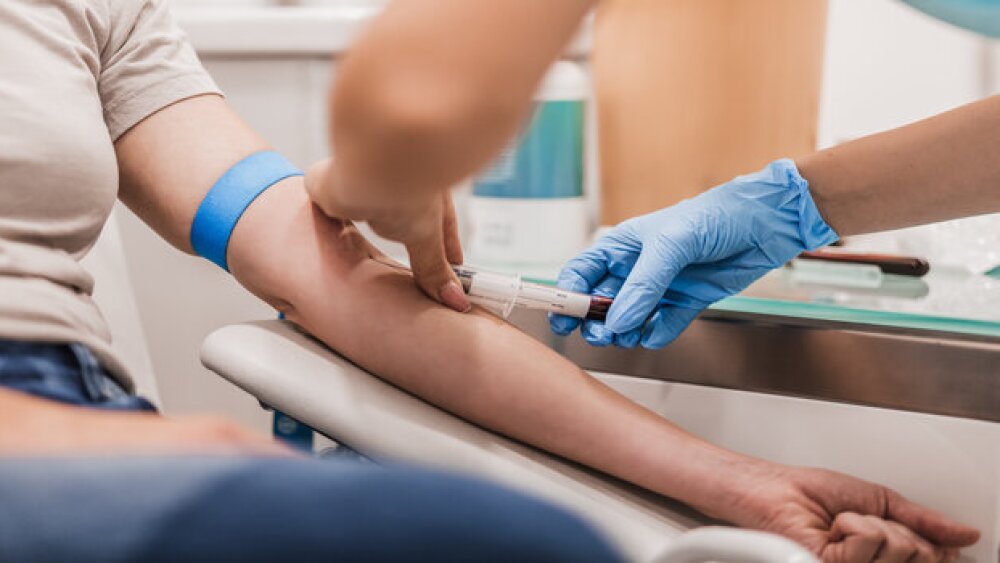Freenome announced Thursday a fundraising round of more than a quarter of a billion dollars, led by Roche, to advance its blood-based cancer tests as pivotal readouts approach.
Pictured: Healthcare worker draws blood from a patient/iStock, kasto80
Cancer testing biotech Freenome announced on Thursday that it has raised an additional $254 million in private financing to support the development of its multiomics-based early detection tests.
The funding round comes as Freenome’s experimental cancer detection tests approach pivotal readouts. One of these is the prospective clinical study PREEMPT CRC, which according to the biotech’s website is “the largest clinical study” assessing a blood-based colorectal cancer screening test, with more than 40,000 enrolled participants.
Freenome is also running PROACT LUNG, a prospective observational clinical trial with up to 20,000 participants to evaluate its lung screening test in former and current smokers 50 years of age and older.
Beyond single-cancer tests, Freenome is also running several multi-cancer screening programs including the Vallania study, which has over 6,200 participants reflecting the test’s intended use populations. Vallania will look at blood samples from people with and without cancer to find biomarker patterns that could be indicative of certain types of cancers.
Freenome’s tests aim to detect cancer before symptoms develop through a simple blood draw. To achieve this, the California-based biotech is leveraging its proprietary multiomics platform, which uses machine learning to detect cancer-specific patterns and real-world data to validate its findings. The technology is designed to pick up both tumor and non-tumor signals, including DNA from the cancer cells or proteins from their surroundings.
Roche led the fundraising round, with participation from other new and existing backers such as Bain Capital Life Sciences, Cormorant Capital, ARK Investments and the American Cancer Society’s BrightEdge Ventures.
Freenome’s haul on Thursday is just the latest development in what has been an active private financing environment for the industry so far in 2024. In the first week of January, biopharma saw two hefty funding rounds: Lykos Therapeutics, working on a treatment for post-traumatic stress disorder, and OnCusp Therapeutics, developing an antibody-drug conjugate (ADC) for solid tumors. Both raised $100 million.
Just this week, four biotechs scored at least $100 million in private support. On Monday, investment firm Medicxi debuted Alys Pharmaceuticals, a conglomeration of six of its portfolio dermatology companies, with $100 million in seed support.
A day later, BioAge shook the industry’s hottest market—obesity—with a $170 million Series D haul, which it will use to advance its muscle-preserving weight-loss asset into Phase II. The same day, ProfoundBio raked in $112 million in Series B funding to support its pipeline of four ADCs for various cancers.
On Wednesday, Latigo Biotherapeutics launched with $135 million in Series A backing, poised to follow in Vertex’s steps as it develops its own non-opioid painkiller.
Tristan Manalac is an independent science writer based in Metro Manila, Philippines. Reach out to him on LinkedIn or email him at tristan@tristanmanalac.com or tristan.manalac@biospace.com.






